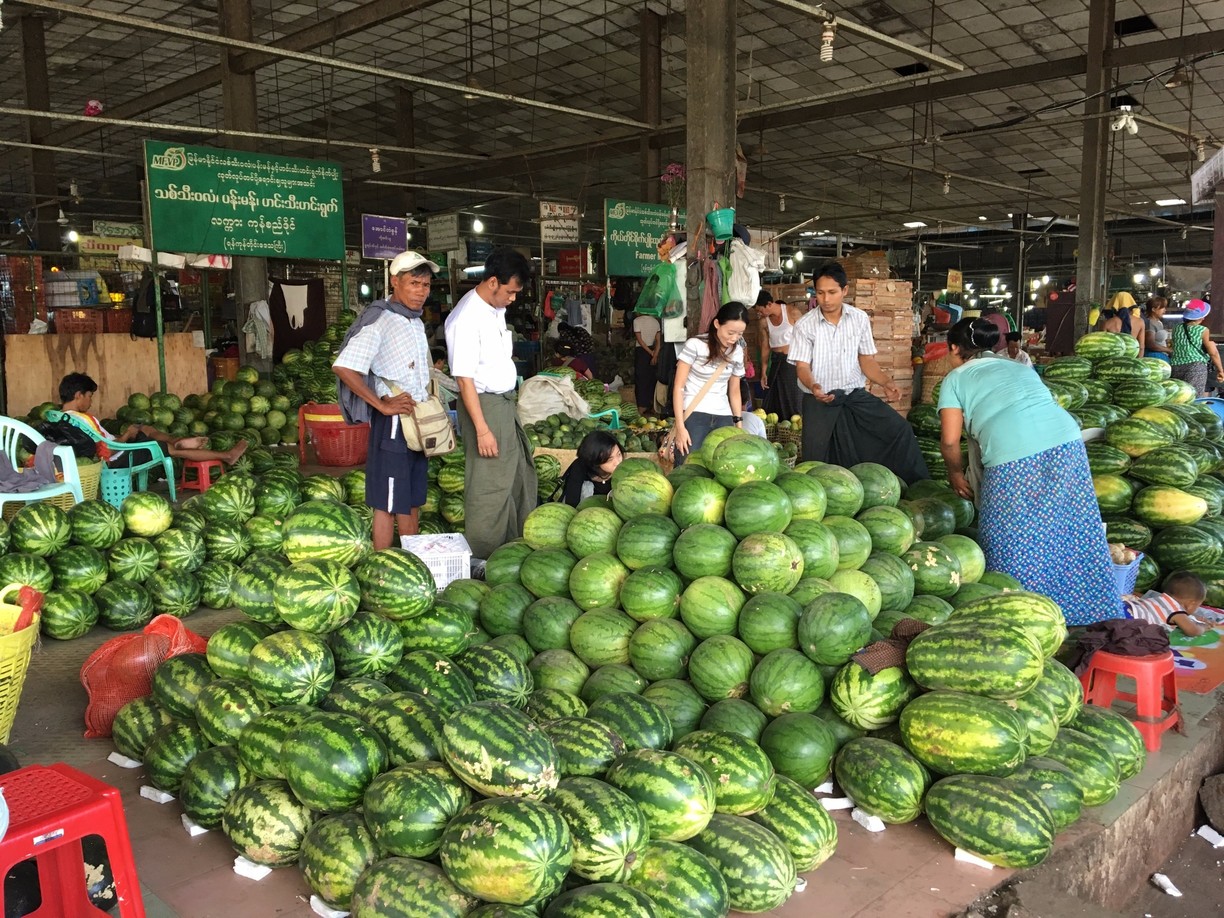The price of watermelons, a main agricultural export, has dropped due to low demand from China. It is not the first agricultural export to suffer due to the fickle Chinese market, and may encourage farmers to improve growing standards to access buyers in other countries.
“Prices of around 2,000 yuan [USD 285] per tonne depending on quality have dropped to around 1,600 yuan [USD 228],” U Naing Win, chair of the Myanmar Melon Producers and Exporters Association, told the Myanmar Times. “We made good profit this time last year, but it’s unlikely to be repeated this year.”
Watermelons are one of Myanmar’s largest fruit products with over 800,000 tonnes exported each year. Fluctuations in Chinese demand for this fruit can have huge impacts on Myanmar’s watermelon trade, as the majority of Myanmar watermelons are sold to China. Many other agricultural products, such as rice, rely on the Chinese market as Myanmar farming practices often do not meet standards for European and American markets. “If we can use the Good Agricultural Practices system, we can get more export value,” U Naing Win commented to the Myanmar Times.
Another vulnerability for Myanmar agricultural exports is the lack of value-added, downstream products, such as canned goods. These sorts of products tend to have greater market stability than fresh produce, yet Myanmar has exported almost no value-added agricultural products. Producing canned and packaged food, too, may open up western markets to Myanmar exporters.
In the meantime, Myanmar will continue to consume the majority of its produce domestically. The country has more arable land than any of its ASEAN neighbors.


